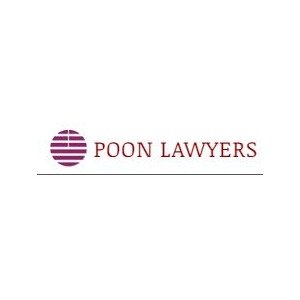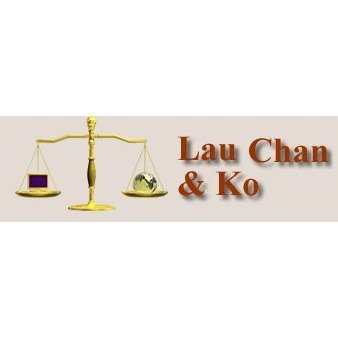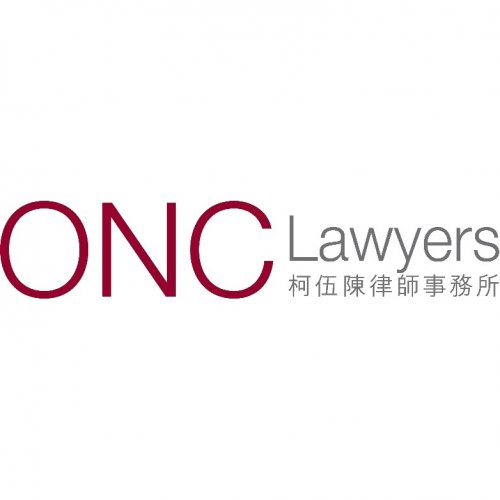Best Natural Resources Lawyers in Central
Share your needs with us, get contacted by law firms.
Free. Takes 2 min.
List of the best lawyers in Central, Hong Kong
About Natural Resources Law in Central, Hong Kong
Central, Hong Kong, is a bustling metropolitan area that also plays a crucial role in the administration and management of natural resources. Natural Resources Law in this region covers the regulation and protection of various resources including water, land, minerals, and energy. The legal framework is designed to balance development with sustainable practices, environmental protection, and respect for indigenous rights.
Given Hong Kong's dense population and limited land area, careful management of natural resources is essential. This involves both local legislation and compliance with international environmental standards. The region's legal structures support sustainable development, aiming to ensure that future generations continue to benefit from available resources.
Why You May Need a Lawyer
Legal assistance in Natural Resources can be crucial for several reasons:
- Land Development and Usage: Navigating the complexities of obtaining permissions and ensuring compliance with zoning laws.
- Environmental Compliance: Assisting companies or individuals with adherence to environmental protection laws and regulations.
- Resource Extraction: Ensuring that the extraction of natural resources adheres to legal and environmental standards.
- Dispute Resolution: Addressing conflicts over land ownership or resource management.
- Governmental Relations: Interacting with governmental bodies to obtain necessary licenses and permits.
Local Laws Overview
Key legal instruments relevant to natural resources in Central, Hong Kong include:
- Environmental Impact Assessment Ordinance: Requires assessments for projects to evaluate their environmental effects.
- Water Pollution Control Ordinance: Regulates the discharge of polluting matters into waters to protect and control water quality.
- Forests and Countryside Ordinance: Protects forested areas and controls logging activities.
- Clean Air Ordinance: Dictates the permissible levels of emissions into the air to protect air quality.
- Town Planning Ordinance: Governs the development and use of land in accordance with designated planning areas.
Frequently Asked Questions
What is Natural Resources Law?
Natural Resources Law deals with the regulation and use of natural resources such as land, water, minerals, and wildlife. It encompasses environmental law, land use law, and conservation law.
Do I need a permit for land development in Central, Hong Kong?
Yes, most land development projects require permits. The Town Planning Ordinance provides the legal framework for securing these permits.
How can I ensure compliance with environmental laws in my business operations?
Compliance can be ensured by conducting regular audits, obtaining necessary permits, and working with an environmental law expert to guide you through relevant regulations.
What are the consequences of non-compliance with natural resource laws?
Consequences can include fines, legal suits, project halts, and reputational damage. Severe breaches could lead to criminal charges.
How does the Environmental Impact Assessment Ordinance affect new projects?
This ordinance requires a detailed assessment of potential environmental impacts of a project, which can influence whether a project receives approval.
Are there specific regulations for offshore resources?
Yes, offshore resource extraction is governed by specific regional agreements and laws aimed at protecting marine biodiversity.
Is public participation allowed in environmental decision-making?
Yes, public consultations are often part of the environmental impact assessment process, allowing stakeholders to voice concerns or support.
Can natural resource disputes be resolved outside of court?
Yes, alternative dispute resolution methods such as mediation or arbitration are often preferred to expedite conflict resolution and reduce legal costs.
What role do non-governmental organizations play in natural resources management?
NGOs can provide support in advocacy, public education, and assisting with compliance efforts. They often partner with governments to promote sustainable practices.
Where can I learn about the latest changes in natural resources laws?
Government websites, legal journals, and professional legal consultations are good sources for the latest updates and interpretations of these laws.
Additional Resources
For further assistance, consider reaching out to the following organizations:
- Environmental Protection Department: Provides guidance on environmental regulations and assessments.
- Lands Department: Manages land use policies and permits.
- Hong Kong Barristers Association: Can help you find qualified legal experts in natural resources law.
- Legal Aid Department: Offers assistance for those who may require financial support in seeking legal services.
Next Steps
If you require legal assistance in the field of natural resources, here are suggested steps to follow:
- Identify your legal needs: Clearly define the issues you are facing or anticipate.
- Consult with a qualified attorney: Look for specialists in natural resources or environmental law.
- Prepare documents: Gather any relevant permits, contracts, and communications pertinent to your case.
- Engage with relevant authorities: Contact related governmental bodies to understand regulatory requirements.
- Consider financial aspects: Be aware of the costs involved in legal processes and explore funding options such as legal aid.
By following these steps, you can navigate the complexities of natural resources law with greater confidence and effectiveness.
Lawzana helps you find the best lawyers and law firms in Central through a curated and pre-screened list of qualified legal professionals. Our platform offers rankings and detailed profiles of attorneys and law firms, allowing you to compare based on practice areas, including Natural Resources, experience, and client feedback.
Each profile includes a description of the firm's areas of practice, client reviews, team members and partners, year of establishment, spoken languages, office locations, contact information, social media presence, and any published articles or resources. Most firms on our platform speak English and are experienced in both local and international legal matters.
Get a quote from top-rated law firms in Central, Hong Kong — quickly, securely, and without unnecessary hassle.
Disclaimer:
The information provided on this page is for general informational purposes only and does not constitute legal advice. While we strive to ensure the accuracy and relevance of the content, legal information may change over time, and interpretations of the law can vary. You should always consult with a qualified legal professional for advice specific to your situation.
We disclaim all liability for actions taken or not taken based on the content of this page. If you believe any information is incorrect or outdated, please contact us, and we will review and update it where appropriate.
















